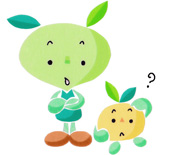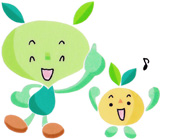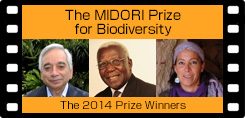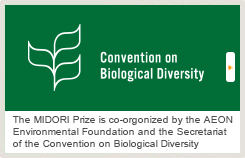Coral
Recently, discussion about corals has been increasing. In the media, the poaching of jewel coral and its resource depletion, and the bleaching of stony coral that is the building coral reefs, have been reported. It is said that the situation of “coral bleaching” is serious. How will our lives be influenced by the loss of coral due to coral bleaching through environmental degradation?
Prof. Kazuhiko Koike of Hiroshima University who has conducted research on this topic answered our questions.
- Questions answered by: Kazuhiko Koike
- Associate Professor, Graduate School of Biosphere Science, Department of Environmental Dynamics and Management, Hiroshima University
Q1
Why will problems be caused in our lives when the coral population decreases?
A
Coral reef habitats cover only 0.2% of the ocean surface. Despite their small percentage, coral reefs are biodiverse marine habitats containing one fourth to one third of marine species. The more biology is diverse, the more substances are produced by marine species, and the availability of the substances such as pharmaceuticals will be increasing. Coral reefs are also important as resources of tourism and fisheries. They also protect islands from waves through playing the role of breakwater.

Q2
What is “coral bleaching”? How does it occur?
A
Coral belongs to the same animal phylum as jellyfish and actiniae (cnidarian). Coral obtains photosynthetic products from “zooxanthella” (dinoflagellate genus Symbiodinium). Therefore, the dietary intake of coral from food uptake is very small. Coral bleaching is a phenomenon caused by the decreasing of symbiotic zooxanthellae which causes the white coloration from the skeleton visible under the tissue. When coral bleaching is serious, it causes the death of coral, and then leads to the collapse of coral reef ecosystems supported by corals. Since the 1950s approximately 20% of the world’s coral reefs have been lost due to coral bleaching. The most influential factor for decreasing zooxanthellae is the seawater temperature rise. Until now, the temperature of seawater has rarely been over 30C. However, probably due to recent climate change, seawater temperatures now sometimes reach more than 30C for a certain period, and symbiotic zooxanthellae within coral reefs are damaged. Then, coral proactively expels damaged zooxanthellae, and this leads to coral bleaching. When the seawater temperature is 32C, the tissues of coral begin to break away, and the coral reef can no longer be restored.

Q3
Japan is one of the developed countries that has coral reefs. What do you think about the role of Japan in saving coral reefs? What types of countermeasures have been taken in the developed countries in order to save coral reefs?
A
First of all, I would expect Japan to make a contribution to research on coral and coral reefs as a developed country that has such reefs. Access to coral reefs by humans including fisheries might be limited in order to conserve coral reefs. The Great Barrier Reef of Australia and northwest Hawaii Islands of the United States are examples of large scale marine protected areas stretching for over 1700 km. However, the area I would like to focus on is the Philippines. In the past, destructive fishing using dynamite and cyanide was conducted in the Philippines, and the coral reefs were seriously damaged. But now, the Philippine Government, NPOs and universities are engaged in the conservation of coral reefs through the setting up of plenty of small scale protected areas. Fish can grow in the protected areas and spill over to the surrounding areas, and then the fisheries can also be activated. These effects are leading to fishermen’s proactive conservation activities for coral reefs. In addition, various organizations such as NPOs conduct eco tours for children by providing opportunities to learn about the importance of coral reef conservation.

Q4
In order to save coral, what should we, citizens, do?
A
I would like to recommend you to dive in the sea with snorkeling mask to see these beautiful coral reefs. You will feel and realize that coral reefs are a paradise for living things and an important environment to be taken over for future generations. To join eco tours is also a good opportunity. It is scary to think that such a beautiful environment might not last for decades. If a sense of crisis can be shared among many people, small but collective power will be a big force to secure coral reefs from extinction. It is important to have interest, to know the facts, and to realize the relationship between the coral reef problems and ourselves.
Thank you very much, Prof. Koike.










